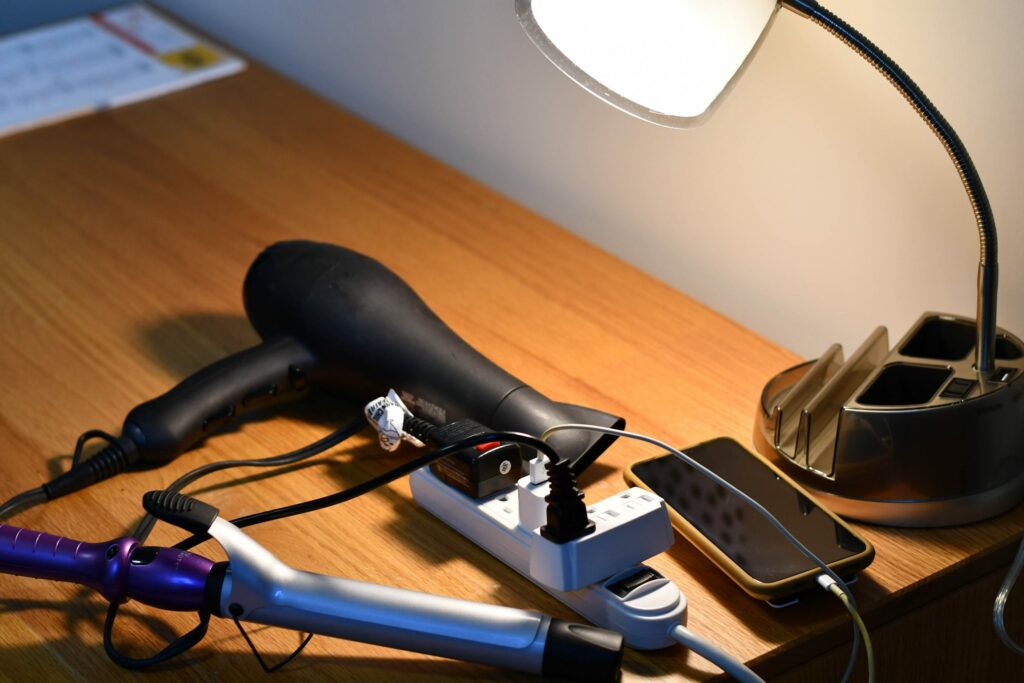There are more than 3,500 fires on college campuses every year. Students use many electronics for school, work, and play. When used improperly, these helpful gadgets can become electric hazards. If you or a loved one is heading off to college, please look over the following tips to prevent electric accidents and fires.

- Extension cords are only for temporary use. Dorm rooms may not have enough outlets to plug in all your gadgets at once. If you must use extension cords, use them temporarily and unplug them when not in use.
- Consider purchasing power strips with an over-current protector, which will shut off power automatically if they are drawing too much power.
- Use light bulbs with the correct wattage for lamps; if no indication is on the fixture, do not use a bulb with more than 60 watts.
- Never tack or nail an electrical cord to any surface or run cords across traffic paths, under rugs or furniture.
- Keep all electrical appliances and cords safely away from bedding, curtains, and other flammable material.
- Discard or repair damaged electronics. It may be tempting to use an electronic with a frayed cord or damaged plug-in to save money. However, damaged electronics should not be used, since they can shock or electrocute students.
- Use only laboratory-certified appliances and electronics.
- Never remove the ground pin (the third prong) to make a three-prong plug fit a two-prong outlet.
- Irons, hairdryers, curling irons and straighteners should never be left unattended, and should be unplugged when not in use.
Beware of the following warning signs that could indicate an electrical hazard:
- Power outages—circuit breakers that frequently trip or fuses that often need replacement
- Dim and/or flickering lights
- Arcs and sparks—flashes of light or showers of sparks anywhere in your electrical system
- Sizzles and buzzes—unusual sounds from your electrical system
- Overheating—overheated wires can give off an odor of hot insulation; switch plates or receptacle covers that are hot to the touch or discolored from heat buildup
- Electrical shocks—any shock, even a mild tingle, may be warning of an electrical danger
If you observe any of these signs, notify your resident director. College students should also know what to do if there is a fire, including escape and meeting plans.

